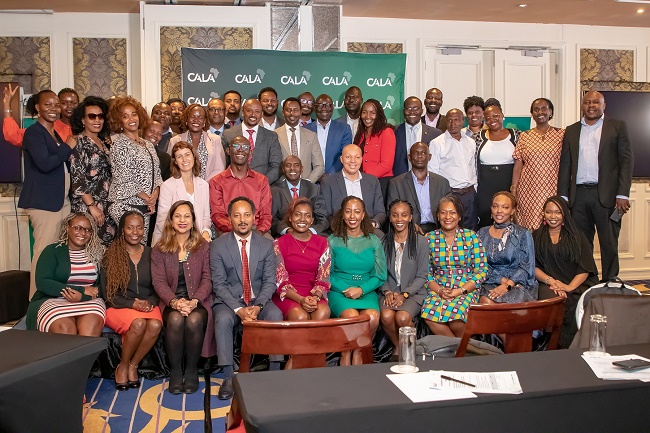Forty food systems leaders from Kenya, Uganda, Rwanda and Ethiopia have graduated from the AGRA-led Centre for African Leaders in Agriculture’s (CALA) Advanced Leadership Programme in Nairobi, Kenya.

They were awarded certificates in the Advanced Leadership Programme for Africa’s Food Security and Sustainability after completing a 16-month training, designed to equip them with the practical leadership skills for effective implementation of national agriculture programmes prioritised in their respective countries.
This was the second of three regional graduation ceremonies scheduled for CALA’s inaugural cohort of 80 delegates who were competitively selected from eight countries – Kenya, Tanzania, Uganda, Rwanda, Ethiopia, Malawi, Ghana and Nigeria – for the 16-month programme last year. The first graduation ceremony for 20 delegates from Ghana and Nigeria was held on November 30, 2022, in Accra, Ghana, in a function presided over by Dr Solomon Gyan Ansah, Director of Crops Services in the Ministry of Food and Agriculture.
Twenty delegates from Tanzania and Malawi will be feted in Malawi in January 2023. Dr. Ansah noted the CALA programme’s responsiveness to climate change mitigation and adaptation. “I am delighted by the delegates’ deployment of environmentally friendly practices, tools and techniques to solve for food systems challenges.”
The East African graduation was presided over by Mr Philip Kello Harsama, Principal Secretary in the State Department for Crop Development, Ministry of Agriculture, Livestock and Fisheries. Mr Harsama commended AGRA for supporting the Ministry to achieve its objectives, and for heeding to its promise of supporting sector leadership as they work to advance food systems transformation.
During the ceremony, the delegates presented preliminary results of their Action Learning Projects, a unique aspect of CALA’s leadership training. In Kenya this included the use of nutritious pre-cooked “fast food legumes” used in school feeding programmes, and an innovative access to finance model for dairy farmers.
Ugandan delegates worked on enhancing protection of fish breeding areas, while in Rwanda they focused on improving production and commercialization of maize. Ethiopian delegates’ projects were on gender-responsive climate adaptation and on increasing the country’s self-sufficiency in wheat through flour blends.
Mr Harsama highlighted CALA’s collaborative spirit which brings together government, private sector and civil society to jointly solve food security challenges.
“One of the biggest challenges we face today is moving from decision making to action. Transformation beckons, with many of the technologies, financing mechanisms, practices and policies necessary for change in place. Yet all these require a spark. That spark, which CALA provides, is collaborative leadership. That is the ability to work together in all our diversity as leaders, to solve problems for the good of many,” he said.
Dr Agnes Kalibata, AGRA’s President, said CALA is building a critical mass of African leaders who are committed to cross-sector collaboration and innovation in food systems.
“CALA actively provides that practical space for peer learning, exchange and networks and we hope this scales and influences change for the agriculture sector. It is laudable how you have brought together your energies from government, private sector and civil society to implement solutions on various food systems focus areas.”
The graduates join a growing continental network of leaders who have distinguished themselves advancing national food security goals. The first class of 80 included executive-level leaders with more than 15 years of experience, and rising stars – typically those with 10+ years of experience in delivery of key national agriculture programmes.
The first cohort was selected from over 1,000 applicants, with 45% of them drawn from government agencies across the eight countries. Twenty-six percent of them come from the private sector and 29% from civil society. The second cohort of 80 delegates joined the programme in August 2022.
